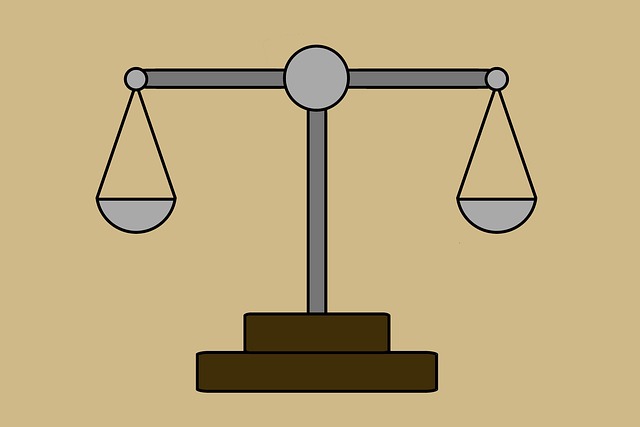Oregon's robust child welfare framework, managed by DHS, requires skilled attorneys to navigate complex legal proceedings involving foster care, adoption, and protective services. Child welfare attorney resources such as state laws, regulations, online databases, professional organizations like the Oregon AAML Chapter, and continuing education programs are vital for these specialists. They demystify the system, advocate for clients' rights, and ensure fair outcomes for children and families involved in custody cases, adoptions, or foster care placements. Choosing qualified counsel and leveraging these resources is crucial for navigating Oregon's child protection system effectively.
Oregon’s complex child welfare laws demand specialized legal expertise. This comprehensive guide is designed for both practicing attorneys and those seeking representation, offering vital insights into navigating Oregon’s child protection system. From understanding key regulations to identifying the right legal counsel and accessing essential resources, this article equips you with the knowledge needed to effectively support vulnerable children and families. Discover the critical steps involved in child welfare cases and explore ongoing professional development opportunities for Oregon child welfare attorneys.
- Understanding Oregon's Child Welfare Laws and Regulations
- Finding and Selecting the Right Child Welfare Attorney
- Key Resources for Oregon Child Welfare Attorneys
- Navigating Legal Procedures in Child Protection Cases
- Continuing Education and Professional Development Opportunities
Understanding Oregon's Child Welfare Laws and Regulations

Oregon has a comprehensive set of laws and regulations governing child welfare, designed to protect children and ensure their well-being. As a child welfare attorney, understanding these legal frameworks is paramount. These laws cover various aspects, including foster care placement, adoption procedures, termination of parental rights, and protective services for vulnerable children.
The state’s child welfare system is guided by the Oregon Department of Human Services (DHS), which oversees the administration of services and ensures compliance with legal standards. Child welfare attorneys play a crucial role in navigating these regulations, providing representation for children and families involved in legal proceedings. They offer invaluable guidance to clients, helping them understand their rights and options under Oregon’s child welfare laws, thereby ensuring fair and just outcomes.
Finding and Selecting the Right Child Welfare Attorney

Finding the right Oregon child welfare attorney is a crucial step in navigating complex legal proceedings related to child protection and custody. When selecting legal counsel, it’s essential to consider their expertise and experience in this specific area of law. Many resources are available to help you identify qualified attorneys who specialize in child welfare cases.
You can start by researching local bar associations or state-specific legal aid organizations that provide directories of approved attorneys. These platforms often filter lawyers based on areas of practice, ensuring you find professionals with a proven track record in child welfare law. Additionally, asking for referrals from trusted sources like social workers or other attorneys who frequently work in this field can offer valuable insights into finding the best representation for your unique situation.
Key Resources for Oregon Child Welfare Attorneys

Oregon child welfare attorneys require a comprehensive set of resources to navigate the complex legal landscape surrounding child protection. Key resources include access to state and federal laws, regulations, and court decisions that specifically address child welfare issues. Online databases and legal research tools are indispensable for staying current with changing legislation and case law.
Additionally, professional organizations such as the Oregon Chapter of the American Academy of Matrimonial Lawyers (AAML) offer valuable resources, educational opportunities, and a network of peers to connect with. These resources facilitate continued learning, enable attorneys to stay informed about best practices, and ultimately provide the highest quality representation for their clients involved in child welfare cases.
Navigating Legal Procedures in Child Protection Cases

Navigating legal procedures in child protection cases can be complex and challenging, especially for those new to the field. Oregon child welfare attorneys play a crucial role in guiding parents, guardians, and caregivers through these intricate processes. They ensure that everyone involved understands their rights and responsibilities, helping to navigate the often labyrinthine system of court orders, temporary placements, and permanent solutions.
The right legal representation can provide much-needed clarity and support during this difficult time. Child welfare attorneys leverage a range of resources—from state laws and regulations to advocacy groups and community services—to offer comprehensive assistance. They help clients prepare for hearings, negotiate settlements, and explore options like custody arrangements, adoption, or foster care placements that prioritize the best interests of the child while respecting family dynamics.
Continuing Education and Professional Development Opportunities

Oregon child welfare attorneys can stay at the forefront of their field by engaging in ongoing professional development. The state offers a variety of continuing education opportunities tailored to meet the specific needs of child welfare practitioners. These programs cover a wide range of topics, including recent legislative changes, best practices in case management, and advanced advocacy strategies. Many workshops and seminars are led by experienced professionals and experts in the field, ensuring that attorneys gain valuable insights and practical knowledge.
By participating in these child welfare attorney resources, legal professionals can enhance their skills, improve client outcomes, and better navigate Oregon’s complex child protection system. Staying informed about the latest developments and trends is essential for providing effective representation to vulnerable children and families.






